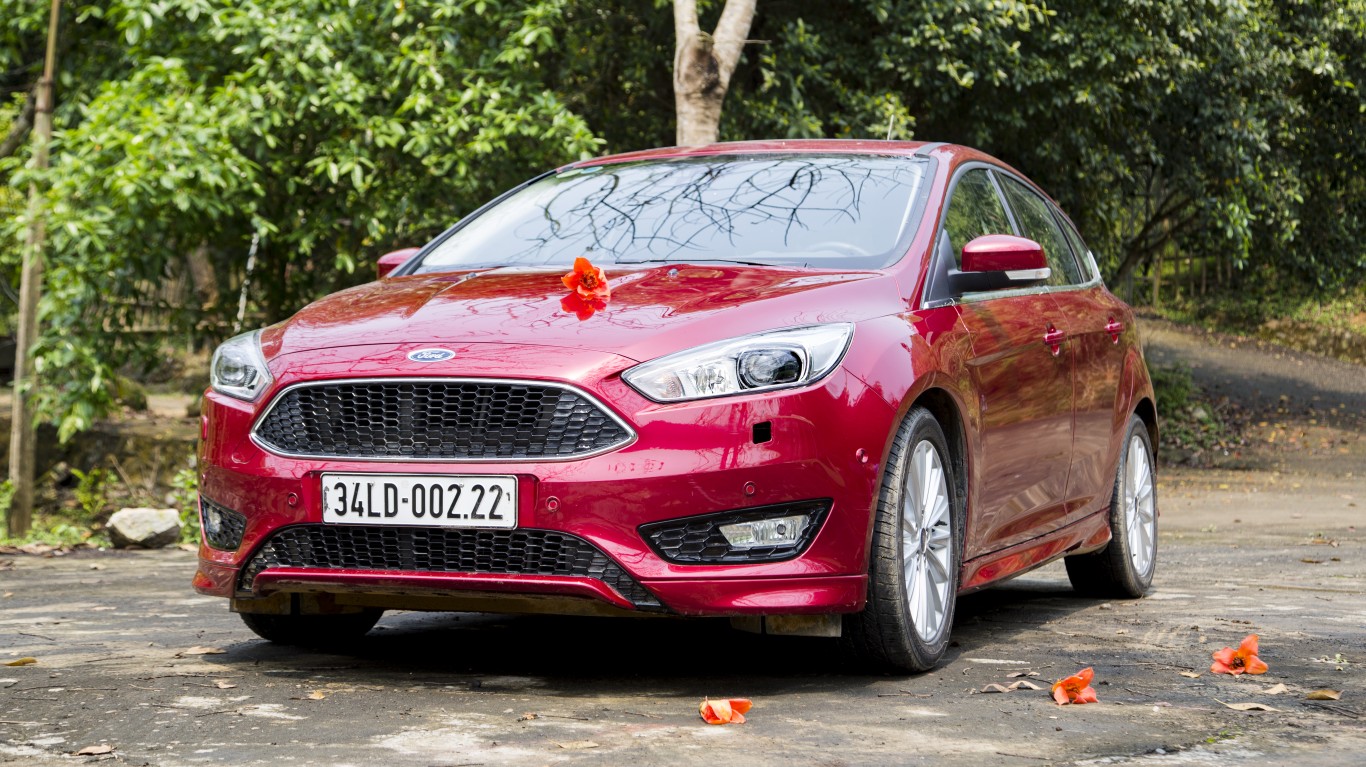
Ford Motor Co. (NYSE: F) found itself on the ropes in China in the third quarter, a place it has occupied for several years. The problem has worsened, and not just because of falling sales. The trade war with the United States already has triggered a pullback in the purchase of American products in China. The dual threat may be what sinks Ford completely in the world’s largest car market.
Ford’s China sales fell 30.3% in the third quarter to 131,060, compared with the same period a year ago. The news was worse for the Ford brand. Its sales were down 37.7% to 77,443. Lincoln’s brand sales dropped 21.1% to 11,618. Ford is up against massive competition in China, as every major global car company wants to add to market share in the world’s largest car market. Ford already lags nearly a dozen of its competitors, with General Motors Co. (NYSE: GM) and Volkswagen at the top of the ladder.
Also, each manufacturer pushing for Chinese sales faces a market that has dropped in general. Nationwide, sales fell 6.6% in September to 1.81 million vehicles. It was the 15th down month in sales in the past 16.
The Wall Street Journal recently pointed out that Chinese consumers are increasingly turning away from foreign brands because they have run afoul of Chinese politics. The result is that some American brands that used to be considered cool are falling out of fashion. Although there has been some progress in the trade war, some analysts expect it to go on for years.
There is a precedent for the exit for a major U.S. car company from a significant region. GM abandoned Europe two years ago when it sold its Opel and Vauxhall units to PSA Group. It decided it could not improve its situation in the region and that hundreds of millions of dollars a year in losses was not in the best interest of shareholders.
It’s time for Ford to give up in China and retrench in markets where it has a chance to make money, as it pushes into the electric and autonomous car markets, which management says are its priorities anyway.
Are You Still Paying With a Debit Card?
The average American spends $17,274 on debit cards a year, and it’s a HUGE mistake. First, debit cards don’t have the same fraud protections as credit cards. Once your money is gone, it’s gone. But more importantly you can actually get something back from this spending every time you swipe.
Issuers are handing out wild bonuses right now. With some you can earn up to 5% back on every purchase. That’s like getting a 5% discount on everything you buy!
Our top pick is kind of hard to imagine. Not only does it pay up to 5% back, it also includes a $200 cash back reward in the first six months, a 0% intro APR, and…. $0 annual fee. It’s quite literally free money for any one that uses a card regularly. Click here to learn more!
Flywheel Publishing has partnered with CardRatings to provide coverage of credit card products. Flywheel Publishing and CardRatings may receive a commission from card issuers.
Thank you for reading! Have some feedback for us?
Contact the 24/7 Wall St. editorial team.




